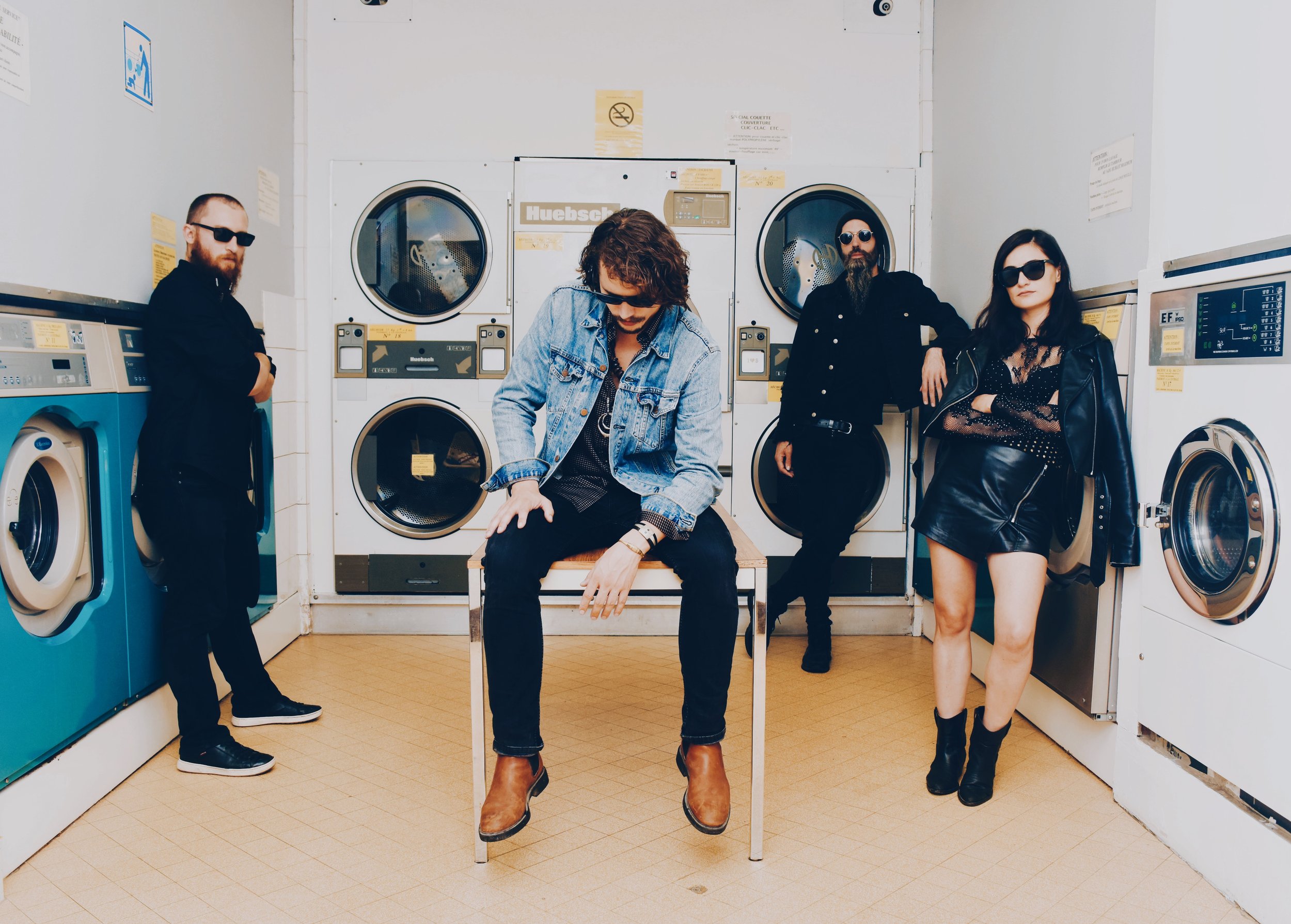jazzhane festival
July 4 - 6, 2024
Al Qasar, Kalben, Šuma Covjek,Lalalar, Kety Fusco, Ustad Noor Bakhsh, Istanbul Ghetto Club, Hiba Salameh, Mehmet Aslan, Kornelia Binicewicz, Hvitling, Timboletti, Mireille Minty, Thomas Burkhalter, Rami Younis, Bassma El Adisey, Zelal Ekinci, Farida Hamdar, Savaş Aslan, and more
Thank you!
Thomas Burkhalter, Rami Younis, and Bassma El Adisey for your insights and sharing your personal experiences on «The Politics of Curatorship», Farida Hamdar for teaching Kids the Darbuka and Daf, Mehmet Aslan for introducing students to Electronic Music Production, Hvitling for the Djing workshop, Savaş Aslan for teaching new students the Bağlama, Kornelia Binicewicz for the Visual Sonic Lecture on the «The Intimacy of (Be)Longing» and her dope DJ set.
Al Qasar for the Arabian fuzz, the lovely Kalben for her beautiful voice and deep lyrics, Istanbul Ghetto Club for their Anatolian-Techno-Punk, Thomas Steiner for the fantastic Silk Road inspired light art, Ustad Noor Bakhsh for the mastery on the benju, Šuma Covjek for the heartwarming lyrics and wonderful arrangements, Lalalar for their hypnotic and fantastic psychedelic krautrock, Ali Güçlü Şimşek for his incredible dance moves on stage, Kety Fusco for an unforgettable and transformative art performance on the harp that took us to the moon, Mehmet Aslan for his eclectic DJ set, Hiba Salameh for her techno set that blends perfectly with Arabic techno, Zelal for opening the Fabriktheater, Hvitling, and Timboletti for closing it.
Our lovely guests for dancing in the rain, our tech and production team for finding perfect solutions in the storm, our friends from Ziegel for the food and drinks, Manon for the beautiful photos and videos, Leylah and Laura for their patience, Mara, Deniz, and Ömer for supporting us and taking care of our artists, the fantastic security team for making sure we are safe, Kilian for the artwork and animations, and our lovely guests for being together with us!
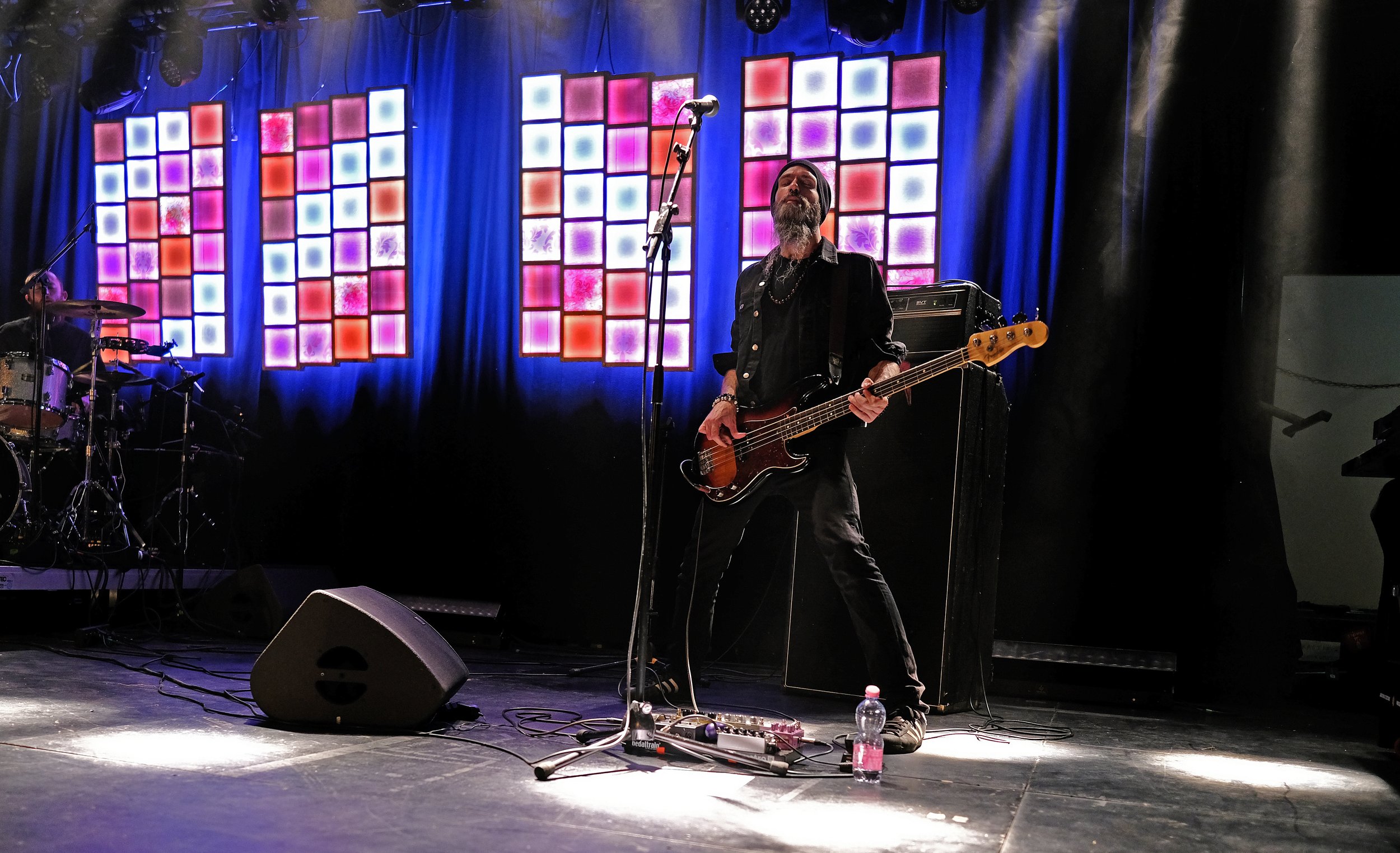
Manon Nyffeler

Manon Nyffeler
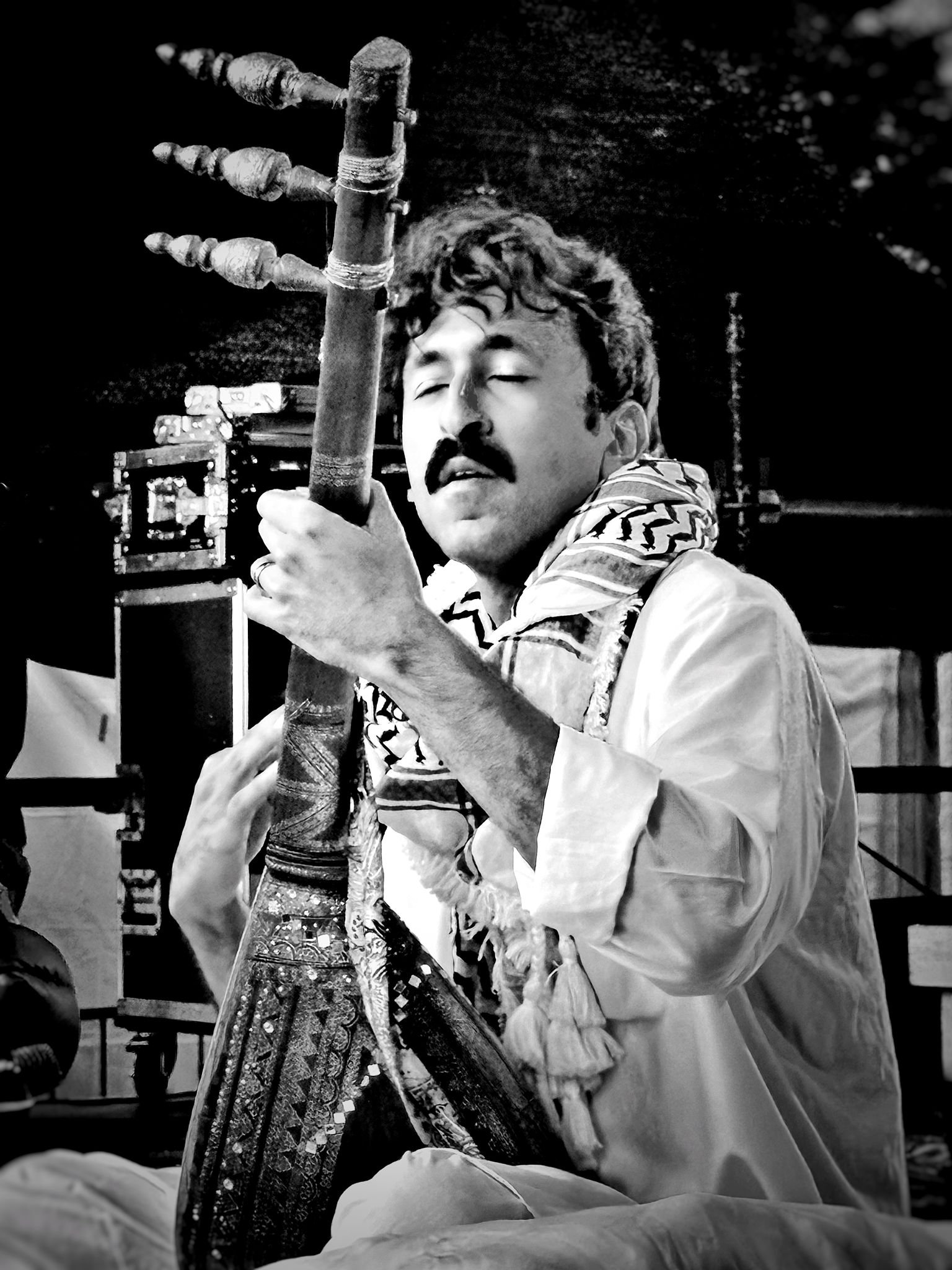
Manon Nyffeler
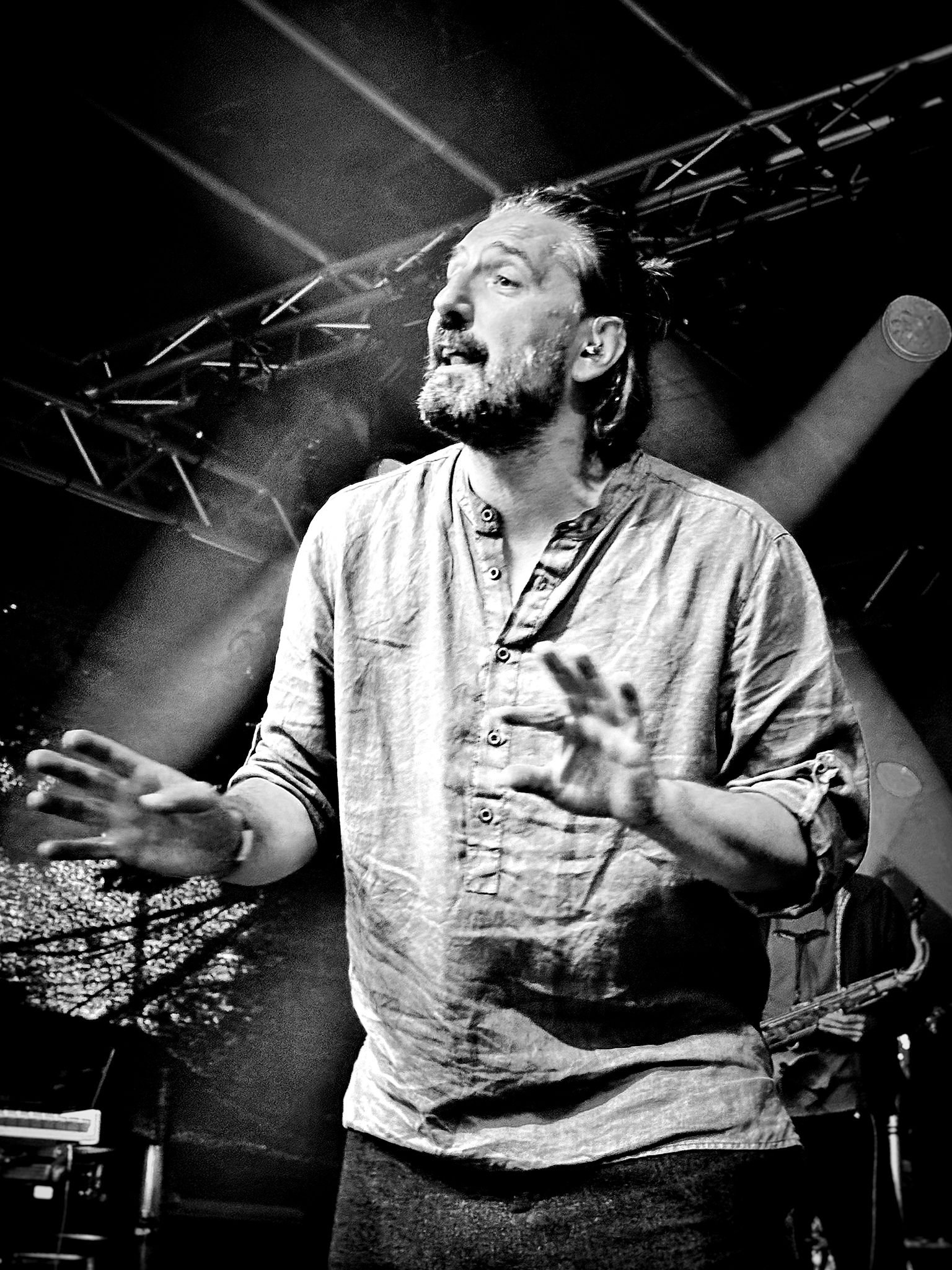
Manon Nyffeler
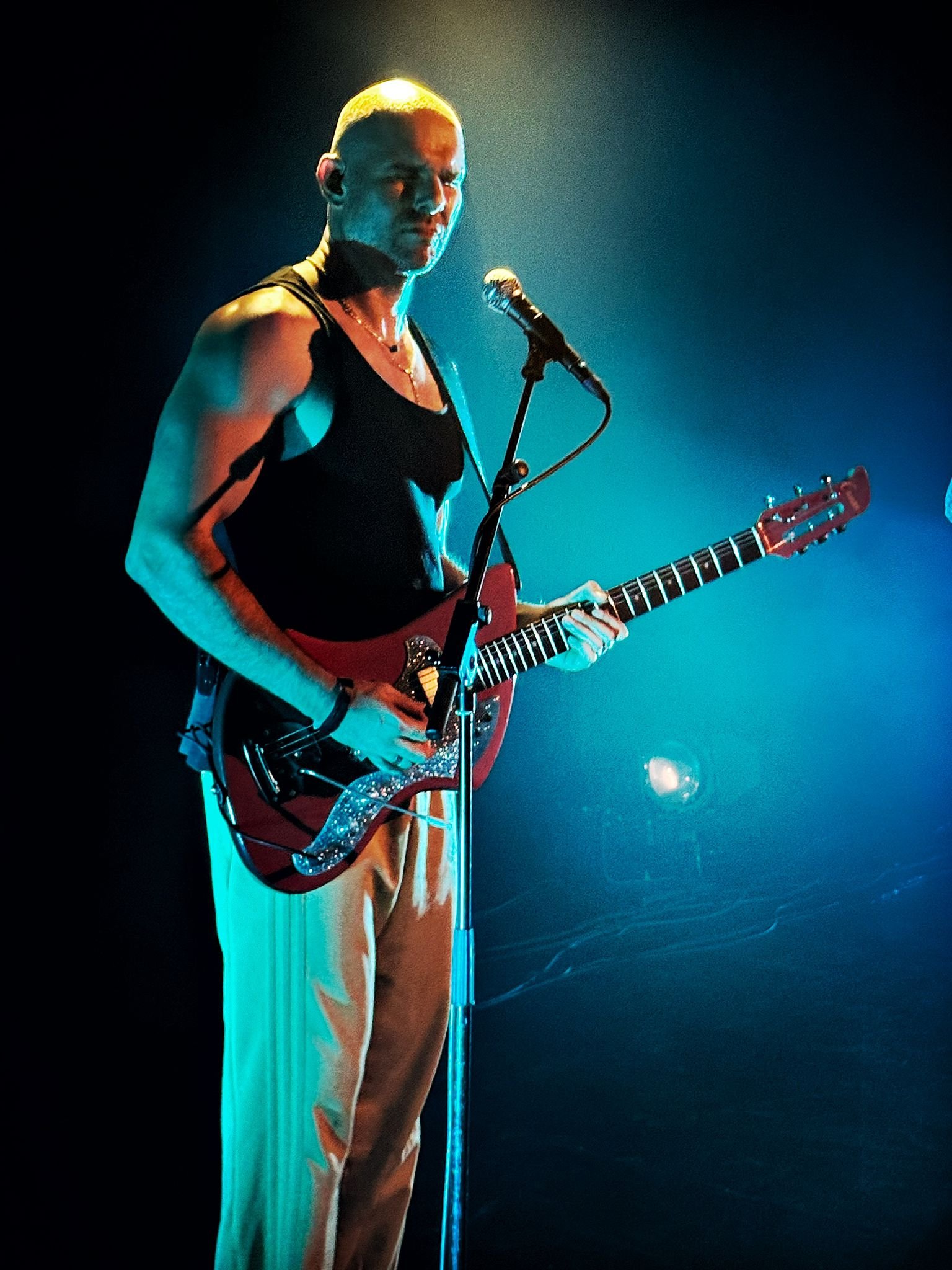
Manon Nyffeler
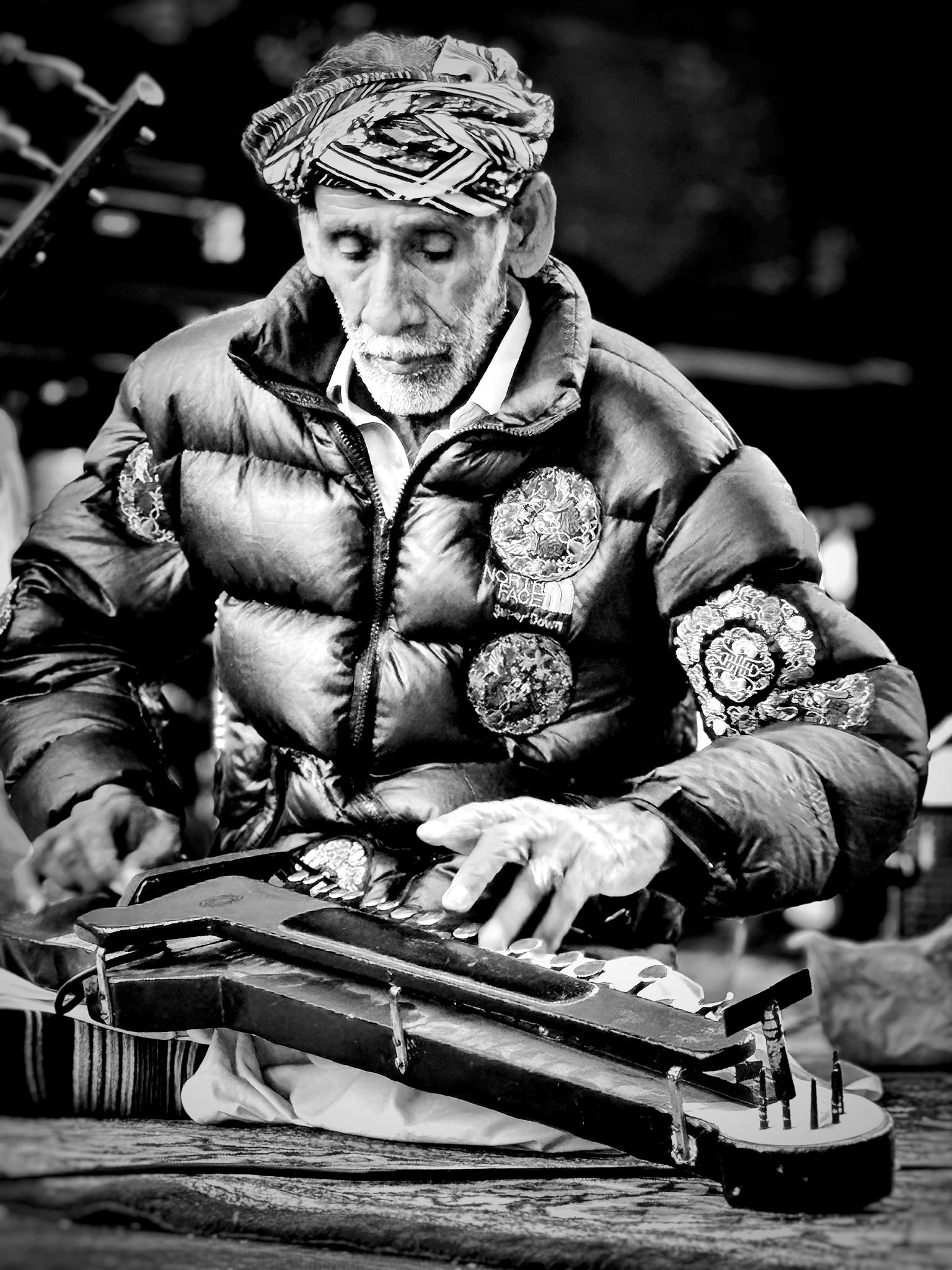
Manon Nyffeler
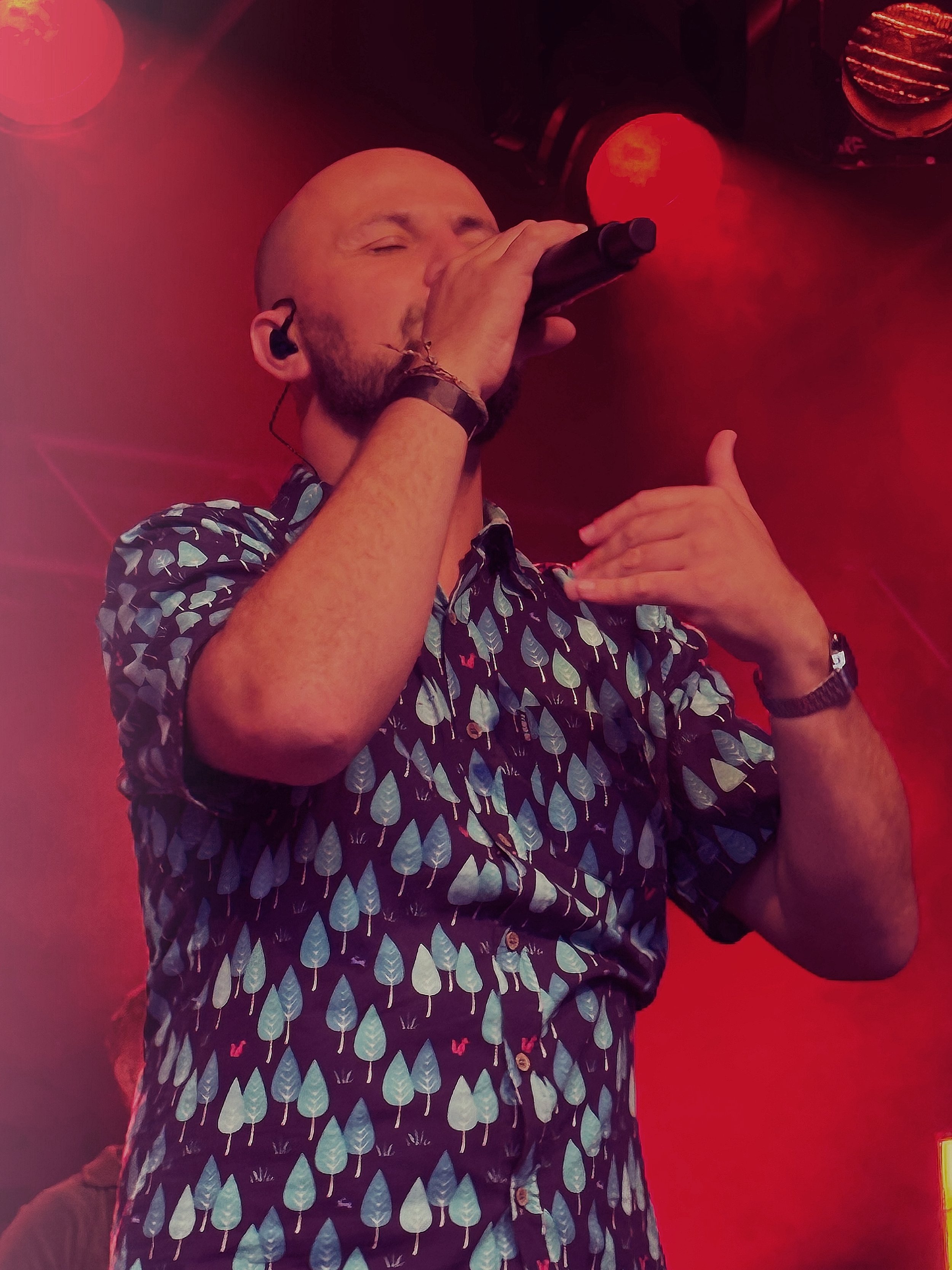
Manon Nyffeler
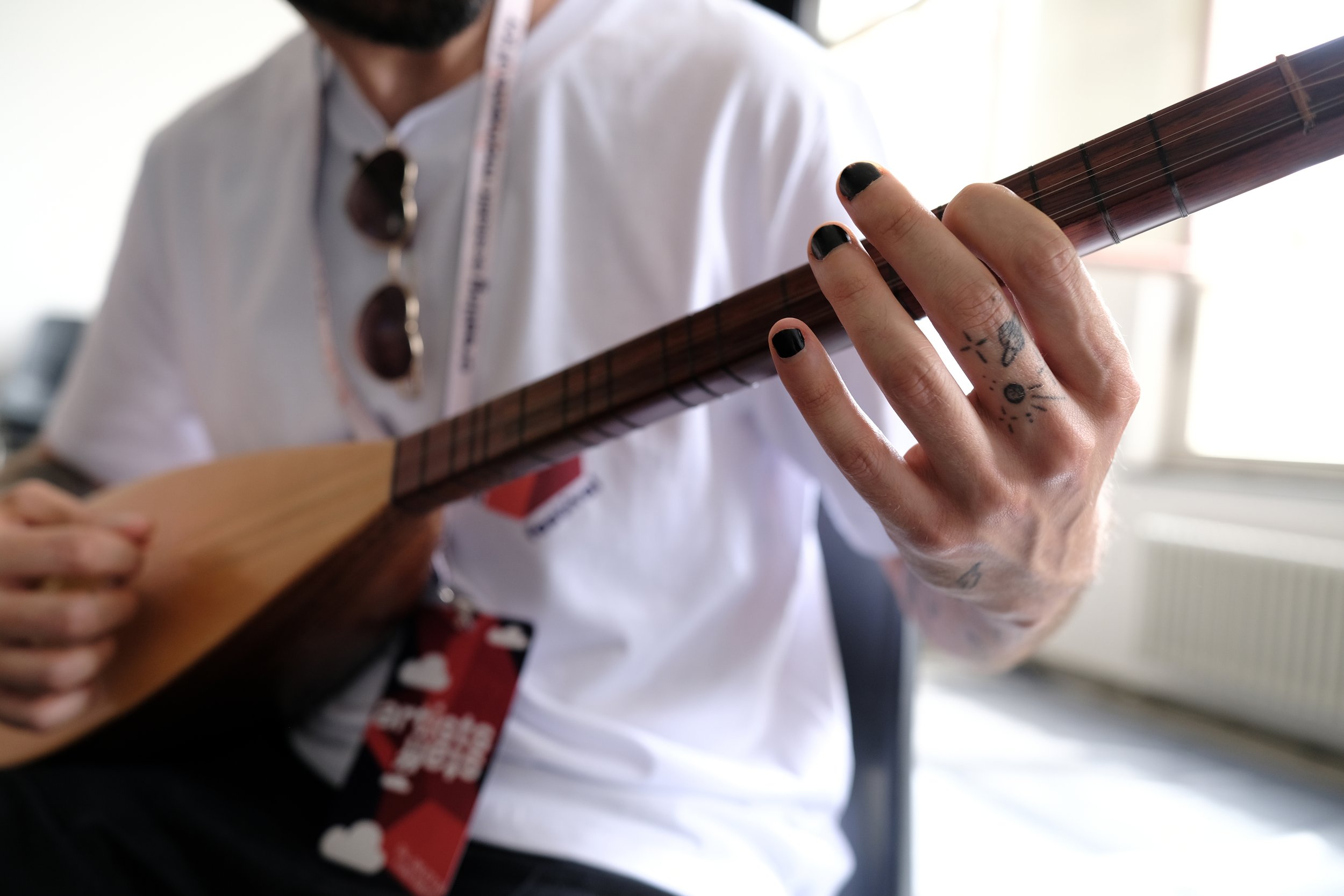
Manon Nyffeler
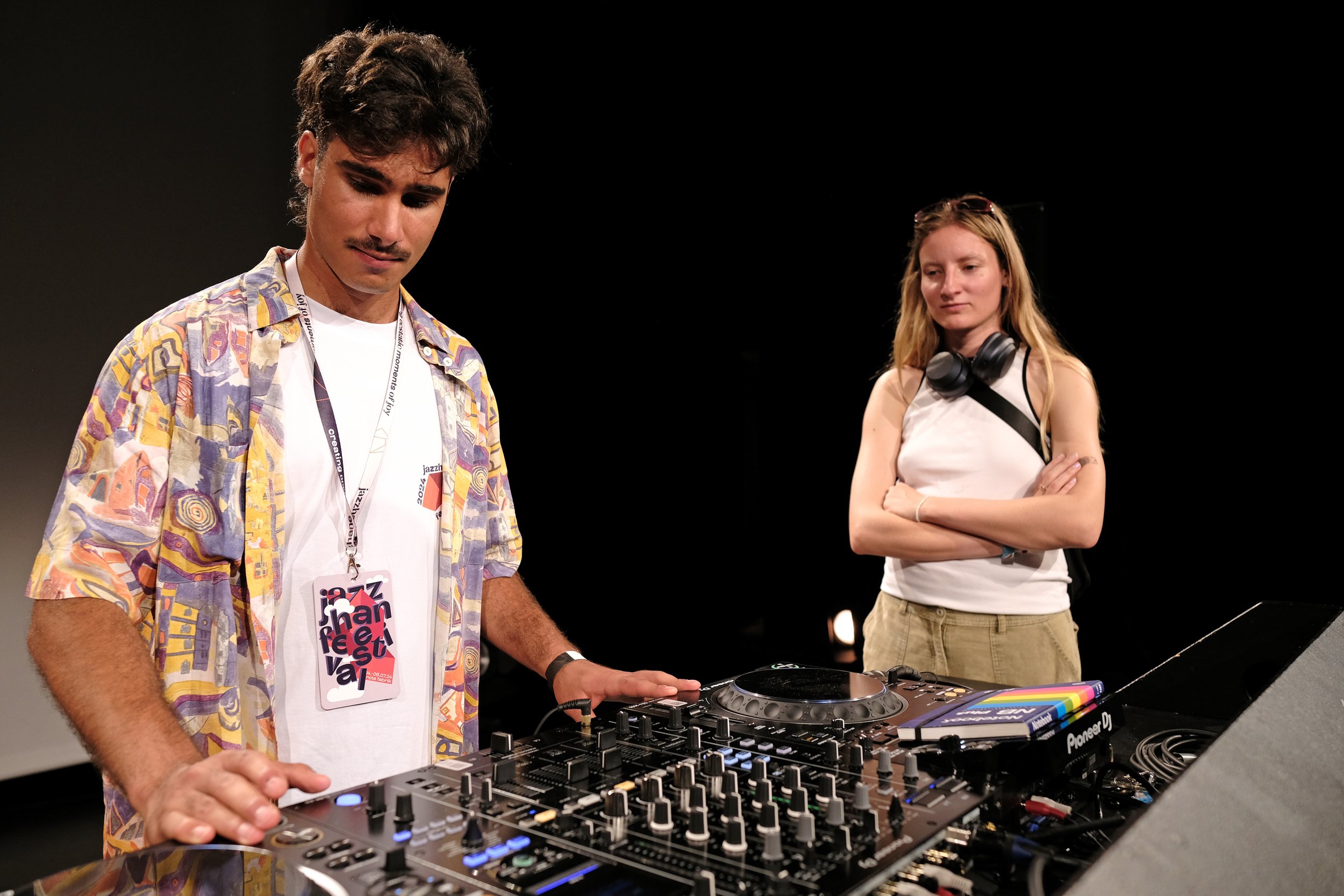
Manon Nyffeler

Manon Nyffeler
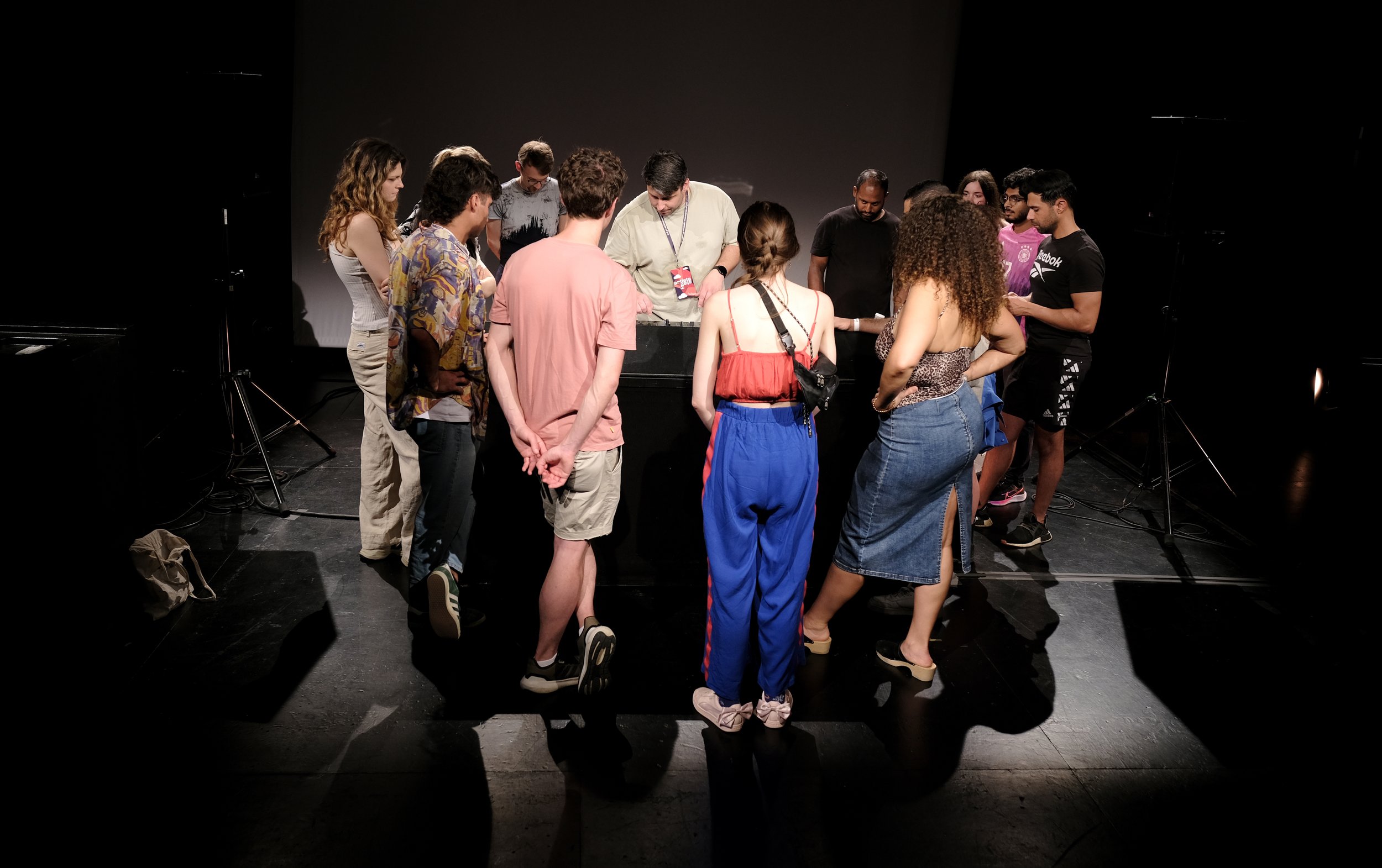
Manon Nyffeler

Manon Nyffeler
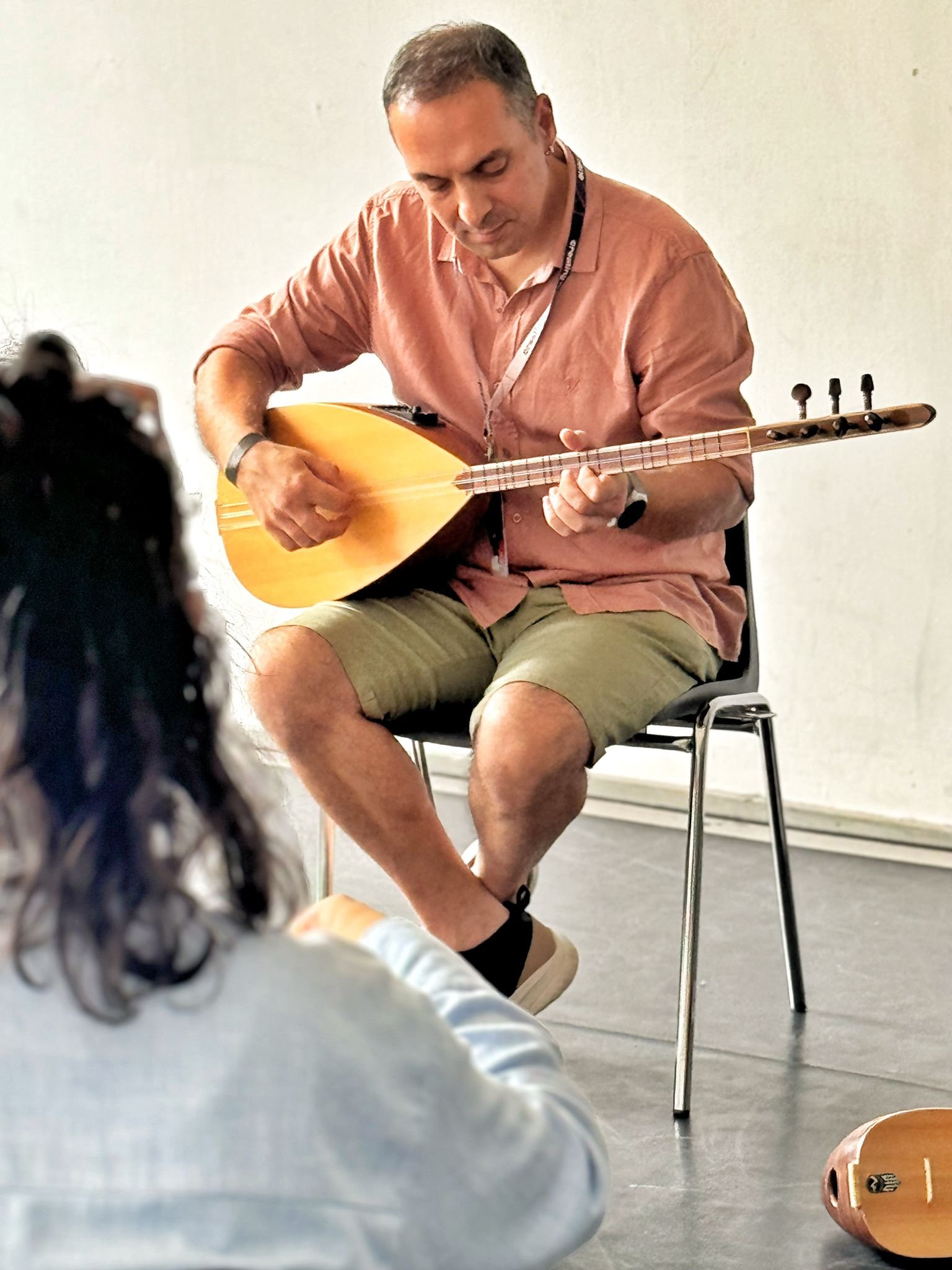
Manon Nyffeler

AL QASAR
AL QASAR
When continents collide, they make a thunderous sound. Al-Qasar create the soundtrack to that fission on their full-length debut.
It is music for a world in flux, with its ancestors deep in the past, but something that could only have been born in the 21st century. Arabian fuzz, they term it, a vision that’s brazenly electric and deeply connected to its roots.
Founded in the Barbes neighborhood of Paris, the band’s music represents the diverse, radically colorful city lives of millions of people with a fresh, contemporary outlook on what societies look like in reality.

KORNELIA BINICEWICZ
KORNELIA BINICEWICZ
Kornelia Binicewicz is a Polish record collector, dj, and a cultural anthropologist. In 2015, she moved to Istanbul to explore female music from Turkey and the Middle East. She travels the world in search of mesmerizing music and meaningful stories to tell.
The founder of Ladies on Records, Kornelia curates a multifaceted endeavor to represent women's contribution to global and local music of the past decades. Ladies on Records tells the stories of women through the music they created.
Kornelia is actively involved in multimedia music projects and exhibitions, podcasts, and mixtapes for music festivals and radio stations (Radio Meuh, Radio Nova, Paranoise Radio). She assists in curating music festivals and writes liner notes and essays for culture magazines.
Her sets are packed with obscure dance floor bangers from all around the world, Turkish and Middle-Eastern rarities, and novelties from the global groove genre. Derived from organic music of the 70s, jazz, and global genres, her eclectic selection brings rich worlds in every meaning of the word to the dance floor.
Dropping knowledge and club bangers, we’re excited to participate in her visual sonic lecture on July 5, 2024, and later see her playing an eclectic dj set at the afterparty.

KETY FUSCO
KETY FUSCO
How do you channel hyperactive and seemingly never-ending childish energy to create cutting-edge music?
Meet Kety Fusco, a master of the electric harp. Bored of playing Debussy, Ravel, or Bach in the classical canon and feeling her creative vision and skills were limited by classical orchestras, Kety broke off and decided to create her own rules, her very own music.
Unlearning everything she was taught, it was the classic harp that became her first victim: Kety maltreats and hammers the harp with anything she can get hold of: forks, knives, tapes, and vinyl records to elicit new and unusual tunes.
Kety was confirmed to be on the right path when Iggy Pop curated her music in his regular BBC podcast Iggy Confidential.
Her sets are as experimental as they are energetic, usually an unknown journey both for the audience and the master at work.

HVITLING
HVITLING
Hvitling [v'it:ling]; a variety of cod but also the Swedish transliteration of his birth name. He has meandered from the canyons of the Vrbas river to the frosty waters of Öresund before finding his way down to the shores of lake Zurich.
Having discovered an inclination for emotional and, at times, melancholic music from an early age whilst strumming classical ballads on his guitar, his attention was rapidly drawn to electronic music. Like a hvitling frolicking in the currents, he takes the listener on a journey through the sea of his mind.

LALALAR
LALALAR
Istanbul’s Lalalar remind you of your favorite 80’s cult show theme, and simultaneously sound like a delightful dumpster dive of spaghetti western-psychedelics, Anatolian funk, sampling and Fresh psychedelia from Istanbul!
With their retro-cinematic bass lines, dirty electronic beats, rebroken vocals, flirting guitars and attentively dug samples from the legacies of Anatolia, Lalalar evoke a future nostalgia. Founded by three well-known musicians from the Turkish music scene, respected both for their solo and collective work, Lalalar is no doubt one of the must-hear European discoveries of the moment.
After setting European stages on fire with the release of their first LP in 2022, the almighty Turkish band returns with En Kötü Iyi Olur, an album that reflects their image: edgy, independent, political, and tremendously effective. With their roots in Anatolian poetry and sounds, but their focus on a club-oriented, uncompromising rock, Lalalar has not given up and is once again ready to turn everything upside down.

KALBEN
KALBEN
A multifaceted storyteller, Kalben is an innovative Turkish writer and singer with an unmistakable raw voice that she blends into a mix of folk, blues jazz, electro-pop, and stints of arabesque and Turkish classic music.
Her music is as unconventional as herself, a story of a woman who does not want to be defined by others, be it her love, relationships, marriage, career, or success.
Embracing her calling with solitude and grace, Kalben tells her personal stories and authentically connects with her diverse audience.

ISTANBUL GHETTO CLUB
ISTANBUL GHETTO CLUB
Istanbul Ghetto Club is an anonymous art initiative that emerges from Berlin’s widely-recognized underground and avant-garde scene. Equipped with modular synthesizers and the traditional Anatolian Bağlama, the collective produces ecstatic tunes with blends of acid and psych. Their performances are witty, raw, and punky at times, and just as the city Berlin, they embody many fields of tension.
In the collective’s own words, the band formed when fictional Kamil, the Bağlama virtuoso, and Mahmut were thrown out of a Pavyon (a live music bar mainly visited by men to swim in different oceans): one didn’t fit the Pavyon scene, got into serious trouble, the other naively went to help, both ended up being beaten and kicked out of the Pavyon.
Left with a broken Bağlama and almost nothing, they visit a Çorbacı, a place one usually goes for traditional soup after a fun night out. Mahmut tells Kamil he is into electronic music, Kamil believes he can contribute with his beloved Bağlama, they decide to give it a try, the result is a peculiar mix of acid-techno-folklore: it does feel just like a tasty Çorba after a fun night out.

ŠUMA ČOVJEK
ŠUMA ČOVJEK
We keep wondering, whether the Šuma Čovjek members were not selected into their school sports teams and decided to create beautiful music instead:
The band is the result of Bosnians and Algerians growing up in multicultural Swiss cities. Their music is an eccentric amalgam of melancholic ballads, rhythmic pop-rock pieces, oriental beats, and furious brass tunes. This is far from your Balkan-pop-cliché, as the musicians sing in French, Croatian, German, Arabic, and Spanish.
With heartwarming lyrics, wonderful arrangements, and brass beats, their shows turn into fantastic parties.

HIBA SALAMEH
HIBA SALAMEH
Hiba Salameh is a Palestinian music producer, filmmaker, and dj from Haifa. Defying genres, she smoothly mixes electronic music with the rich heritage of Arabic music and its counterparts from the planet’s southern hemisphere.
This is where energetic four-to-the-floor beats meet microtonal tunes and melancholic songs most of us know by heart from childhood. She plays music that travels across borders, denies their existence, and in doing so Hiba unifies her audiences with emotions she perfectly knows how to elicit.
Hiba’s sets are unpredictable, ever-changing in rhythm and pace, creating explosive dance floor energy.

USTAD NOOR BAKHSH
USTAD NOOR BAKHSH
With Ustad Noor Bakhsh, from near Pasni, Balochistan, we are honored to host a master of the Balochi Benju (a keyed Zither), an instrument he has played since his early childhood. Noor Bakhsh is a legendary instrumentalist throughout the Makran Coast, however, he only garnered wider attention after his most recent recordings and videos.
The Benu, once a Japanese toy for kids called the taishōkoto, was adopted by Balochi musicians and made into the refined folk instrument it is today. Noor Bakhsh plays an electric Benju, producing an idiosyncratic sound on an old pickup and a small Phillips amp he bought from Karachi two decades ago. Carrying forward the legacy of his teachers and inspirations, such as Bilawal Belgium and Misri Khan Jamali, his music elicits influences from rich traditions far beyond Balochistan.
Careful listeners will be taken on a journey with Noor Bakhsh’s experimental style, a repertoire that includes Persian and Kurdish tunes, Arabic Ghazals, and the many languages spoken in Pakistan: music that traveled in his lands before the modern borders of Iran and Pakistan were drawn; before Balochistan was divided.

TIMBOLETTI
TIMBOLETTI
Rumor has it that Timboletti escaped from a confetti factory in faraway-land and serendipitously joined a flea circus on the road.
This is one of the many explanations why his listeners start seeing sepia-colored scenes from exotic places: with the steady, hypnotic rattle of a steam train in the background, the pictures show sequences from the Silk Road: India, Pakistan, Armenia, Iran, Mesopotamia, the Levant, South America, and from the infinite realms of Inner Space.
Timboletti profoundly understands to blend traditional, organic, hand-played tunes, and electronic House beats. You can find yourself dancing to a sad Armenian folk song your parents usually cry to, in other instances, his music takes you on an energetic desert ride, unleashing a racing pulse, often with hypnotizing effects.
The Times They Are A-Changin', and so is the dancefloor: we’re excited to hear how Timboletti adapts his fantastic downtempo sets higher BPM ranges and still keeps surprising us with melodic tunes we are used to from home.

MEHMET ASLAN
MEHMET ASLAN
Picking up on the sounds from his childhood memories, this Swiss-born Turk unintentionally found his way into producing his own blend of hamam house during his formative years in the Basel club scene.
Mehmet has been driven by questions related to the fluidity of his own post-migrant identity since his breakthrough EP. The subsequent years have seen Mehmet grow as an artist, answering those questions through his music productions, live performances, and dj sets, leading to his debut studio album «the Sun is parallel» in 2022.
We are happy Mehmet as back with jazzhane and look forward to a fantastic dj set and music workshop.

THOMAS BURKHALTER
THOMAS BURKHALTER
Thomas Burkhalter is an ethnomusicologist, anthro-pologist, AV-artist, and writer from Bern, Switzerland.
He is the founder and director of Norient (Norient.com) and the Norient Festival, has co-directed several documentaries (e.g., Contradict, Berner Filmpreis 2020) and AV/theatre performances, and is the author and co-editor of several books (e.g., Local Music Scenes and Globalization: Transnational Platforms in Beirut, Routledge, The Arab Avant-Garde: Musical Innovation in the Middle East, Wesleyan University Press).
Currently, he is working on his new music project Melodies In My Head, and on the podcast series South Asian Sound Stories with musicians from the UK, Bangladesh, India, Maldives, Sri Lanka, and Pakistan.
At the festival, Thomas will be joined by Rami as a panelist to discuss «The Politics of Curatorship» together with Bassma El Adisey.

BASSMA EL ADISEY
BASSMA EL ADISEY
Bassma El Adisey studied art history, comparative literature, and visual theory at the University of Zurich and the University of Basel.
She is a curator at the Aargauer Kunsthaus in Aarau and teaches “Contemporary Art Histories” at the F+F School for Art and Media Design in Zurich.
At the Kunstraum Aarau, she is planning talks, panels, and round table discussions. Bassma is interested in the intersection of art and scenography and how exhibitions can serve as a platform for diverse artistic creation.
Bassma will host the panel discussion «The Politics of Curatorship» with Thomas Burkhalter and Rami Younis.

RAMI YOUNIS
RAMI YOUNIS
Rami is a Palestinian filmmaker, writer, journalist, and cultural activist from Lyd. He co-founded and managed the first-ever Palestine Music Expo, an event that connects the local Palestinian music scene to the worldwide music industry.
Rami wrote for the online magazine +972 and served as both writer and editor of its Hebrew sister site “local call”, a journalistic project he co-founded to challenge Israeli mainstream media outlets. He is also the co-founder and first host of the Arabic-language groundbreaking daily news show, “on the other hand” on the Israeli broadcasting corporation - a show that served a watchdog against fake news.
Rami will be joined by Thomas as a panelist to discuss «The Politics of Curatorship» together with Bassma El Adisey.

ZELAL EKINCI
ZELAL EKINCI
Zelal is a Kurdish music teacher and was born in Izmir. Raised in Diyarbakır, she studied both in İstanbul and Hildesheim, and recently migrated to Germany to teach music in Darmstadt.
Heavily influenced by the Bağlama (long-necked lute) of her talented uncle, she played the piano and flute in her teenage years.
Zelal smoothly combines tunes from Mesopotamia for an eclectic and explosive dancefloor experience: think of melodramatic tunes from traditional Anatolian folk songs, playful clarinets echoing the narrow streets from İstanbul to Athens, and deep basslines from down temp techno sets.

MIREILLE MINTY
MIREILLE MINTY
Mireille Minty's passion for electronic music comes from flow, harmonies, and rhythms: in her sets, one senses her understanding of music and her powerful ear for nuance. This allows her to capture and convey moods through her live sets.
Mireille has made it her mission to create danceable sets by smoothly combining darker and powerful tunes with melodic, minimalist, and playful ones.

FARIDA HAMDAR
FARIDA HAMDAR
A versatile percussionist, Farida Hamdar graduated from in classical music studies from the Zurich University of Arts.
She plays in diverse formations and projects, among others, with Den Dala, Bang Bax, Orange Radio, City light Symphony Orchestra, and enjoys learning more about traditional global sounds while traveling. Farida teaches drums, mallets, and hand percussion at the Alato Music School.

SAVAŞ ASLAN
SAVAŞ ASLAN
Born in Erzincan in 1976, Savaş Aslan attended Arif Sağ’s (a legendary Alevi musician and Saz player from Erzurum) music school as a teenager. He later attended the İstanbul Technical University, where he graduated from the Folk Music Conservatory.
Together with his friends at college, he co-founded the band «Güneşe Türkü», recorded a CD in 1997, and performed in Turkey and abroad. A master of the Saz, Savaş has played together with Anatolian folk and rock stars, such as Hüseyin Karakuş, Servet Kocakaya, Cem Yıldız, Müslüm Eke, Kutsal Evcimen, Agire Jiyan, Erdal Erzincan, Yavuz Bingöl, Grup Munzur, Grup Amed, Sevingül Bahadir, Türkü, or Haluk Levent.
He continued to perform as a soloist in the folk group, that was supported by the Turkish Ministry of Culture. In 2021, he had to leave Turkey and moved to Zurich, where he continues his profession and passion both as a musician and as a music teacher.
In April 2022, Savaş performed at the first Psychedelic Music Explosion at the renowned Jazz Club Moods together with Alican Tezer, Barış K., and Alp Olivier Yorulmaz, a true transformative jam performance that paved the way for all editions of the Psychedelic Music Explosion.
Tickets
We place great value on making the festival available to everybody. Together with our friends at the Rote Fabrik, we have worked on an inclusive price policy.
Solidarity tickets help us (1) offer lower prices for members of our community who cannot afford higher ticket prices, and (2) they support us in continuing our activities in the cultural sphere.
Festival Passes
Entrance on Thursday, Friday, and Saturday to the panel discussion, the visual sonic lecture, and all concerts and parties.
Solidarity tickets help us (1) offer lower prices for members of our community who cannot afford higher ticket prices, and (2) they support us in continuing our activities in the cultural sphere.
CHF 155 - Solidarity
CHF 115 - Standard
Festival Ticket Friday
Entrance to visual sonic lecture, concerts, and parties on Friday, July 5, 2024.
Solidarity tickets help us (1) offer lower prices for members of our community who cannot afford higher ticket prices, and (2) they support us in continuing our activities in the cultural sphere.
CHF 70 - Solidarity
CHF 50 - Standard
CHF 25 - Reduced (IV/Kulturlegi)
please note that you need to show a valid Kulturlegi and/or IV-card
Festival Ticket Saturday
Entrance to all concerts and parties on Saturday, July 6, 2024.
CHF 85 - Solidarity
CHF 65 - Standard
CHF 33 - Reduced (IV/Kulturlegi)
please note that you need to show a valid Kulturlegi and/or IV-card
Pay what you can
Workshops, panel discussions, visual sonic lectures
You decide how much you can or are willing to pay.
Solidarity tickets help us (1) offer lower prices for members of our community who cannot afford higher ticket prices, and (2) they support us in continuing our activities in the cultural sphere.
CHF 35 - Solidarity
CHF 20 - Standard
CHF 10 - Reduced
1 drink voucher included

WIN TICKETS
WIN TICKETS
The winners will be notified via e-mail. Please note that winners must show an official ID at the box office.
Conditions: Everbody who is at least 18 years old is eligible to participate. We do not allow multiple entries.
A correspondence will be kept about the draw for our newsletter. We assure that the data will be used exclusively for the newsletter and will not be passed on to third parties. The newsletter can be cancelled at any time!
The legal process is excluded.

Frequently Asked Questions
-
Yes, the jazzhane festival hosts both open-air and indoor events.
-
The jazfhane estival takes place at the Rote Fabrik, Seestrasse 395, 8038 Zürich. We encourage our guests to use public transportation or their bikes. The Rote Fabrik does not offer any dedicated parking sots.
-
We will announce the detailed program and schedule a couple of weeks before the festival.
-
The panel discussion and visual sonic lecture will be in English. The music workshops will be taught in German and/or English depending on the students’ preferences.
-
You can buy your tickets online on seetickets.com or at one of Seetickets’ official retail partners (Coop, Press & Books, Zürich Tourismus, etc.). See here for more information.
Usually, you can also buy tickets at the box office. Please note that we do not keep a quota on box office tickets. We advise you to always buy your tickets in advance to guarantee your spot at our concerts.
-
We place great value on making the festival available to everybody. Together with our friends at the Rote Fabrik, we have worked on an inclusive price policy.
We have a pay-what-you-can price policy for our panel discussions, visual sonic lectures, and workshops.
The concerts and parties have three price categories: solidarity, standard, and reduced (for holders of IV-Cards/Kulturlegis) -
The Rote Fabrik is a cash-only venue. Please make sure to come prepared. If you need to withdraw cash, you can use one of the ATMs close to the venue.
-
The Restaurant Ziegel oh Lac will take came of your thirst and hunger.
-
Yes, if the weather gods are on our side, you are welcome to jump into the lake. In fact, many of our guests have done so last year.


